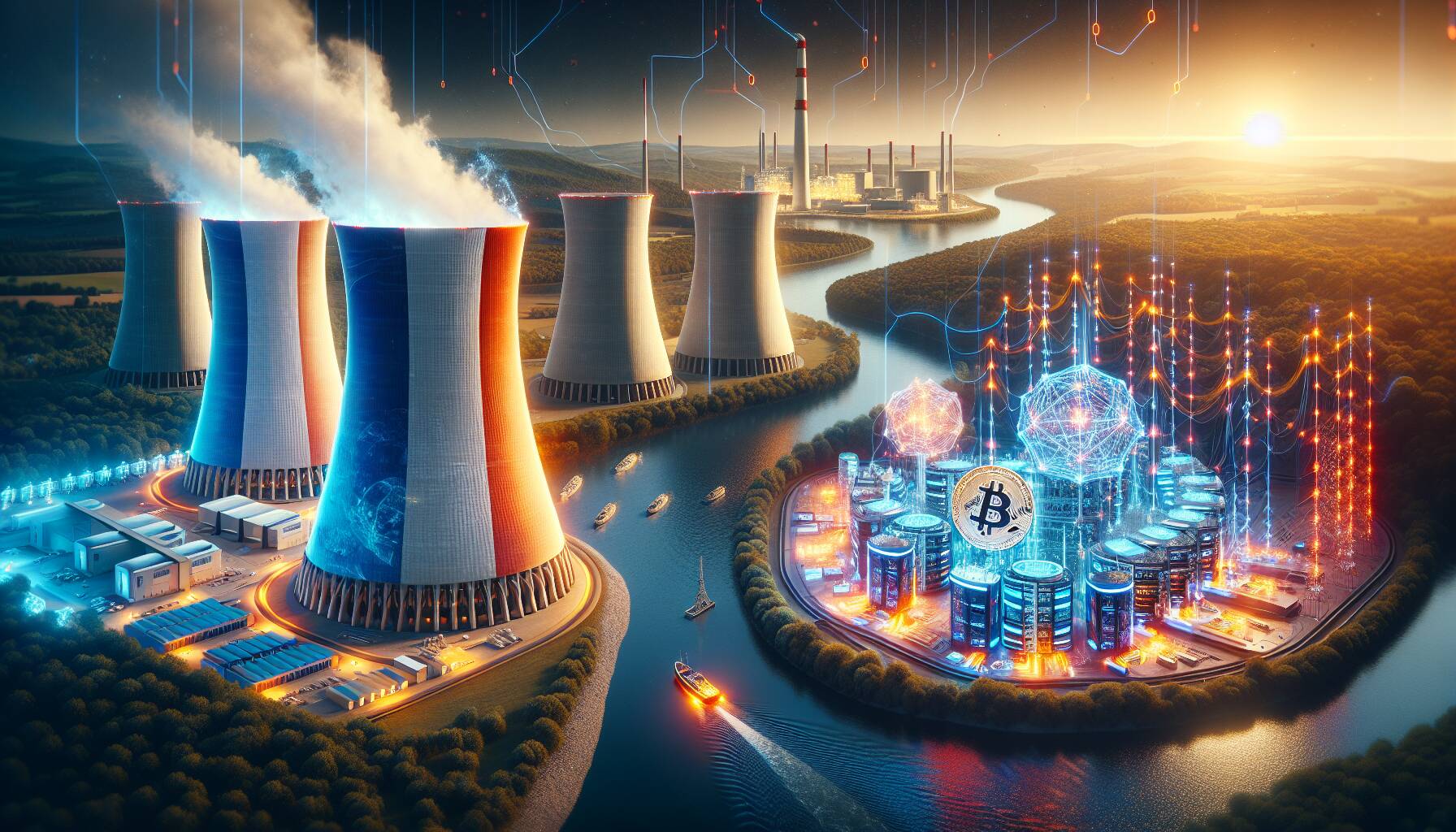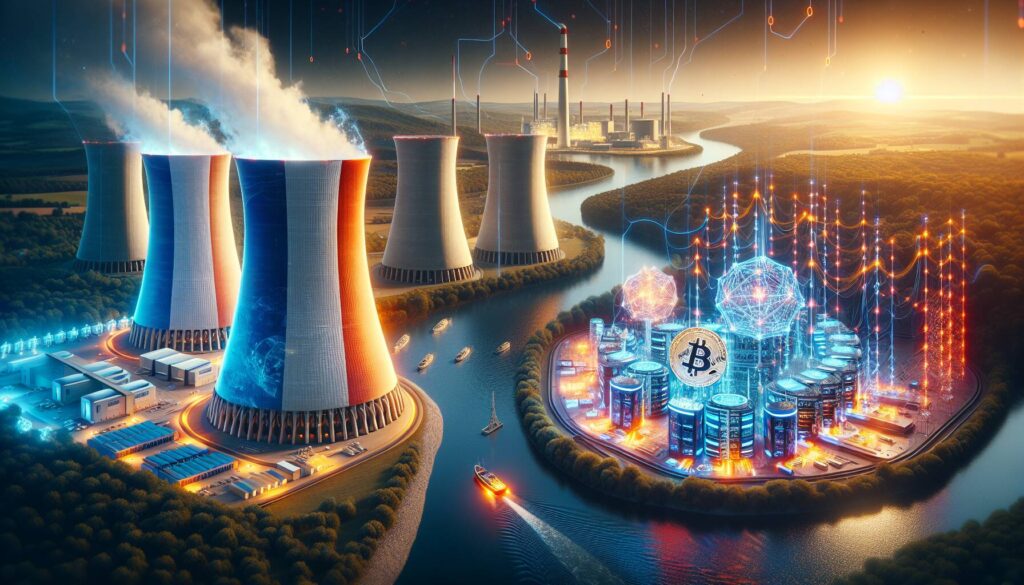A new initiative brewing in France could change the landscape of cryptocurrency mining in the country. A group of lawmakers is working on a draft law aimed at harnessing surplus electricity generated by the nation’s nuclear power plants to mine bitcoin (BTC). This proposal, revealed through statements to Le Monde, seeks to install mining hardware at facilities operated by Électricité de France (EDF), the state-owned utility company.
Highlighting the potential impact, it’s worth noting that France stands as the largest producer of nuclear power in the European Union, responsible for a significant portion of the bloc’s energy output. According to Eurostat, France produced over 338,000 gigawatt hours in 2023, contributing more than half of the total energy generation within the EU. Unfortunately, a considerable amount of this energy is lost, with statistics indicating that over two-thirds of the heat generated through nuclear fission goes unused.
Supporters of the initiative, like parliament member Aurélien Lopez-Liguori, advocate for the approach as a “secure and extremely profitable solution.” Notably, this proposal comes after a previously rejected amendment considering the role of crypto mining in France’s energy strategy. Utilizing surplus energy for bitcoin mining is not a novel concept; Pakistan has already allocated 2,000 megawatts of power for bitcoin mining and AI data centers, while Tether, a major stablecoin issuer, is also investigating similar opportunities using surplus renewable energy in partnership with South American agribusiness Adecoagro.
“It’s a secure and extremely profitable solution,” said Aurélien Lopez-Liguori, a member of parliament involved in drafting the bill.

Surplus Electricity for Bitcoin Mining in France
Key points regarding the proposal by French lawmakers to utilize surplus electricity from nuclear power for Bitcoin mining:
- Draft Law Initiation: French lawmakers are drafting a law to enable Bitcoin mining using excess electricity from nuclear plants.
- State Utility Involvement: The mining hardware would be installed at facilities owned by Électricité de France (EDF).
- Energy Production Statistics: France is the largest nuclear power producer in the EU, generating over 338,202 gigawatt hours.
- Energy Waste Concerns: Over two-thirds of the energy generated from nuclear fission is currently lost.
- Economic Viability: The proposal is seen as a “secure and extremely profitable solution” for enhancing energy utilization.
- Historical Context: Similar initiatives have been undertaken in other countries, such as Pakistan leveraging idle coal-powered plants.
- Private Sector Interest: Tether explores Bitcoin mining using surplus energy from agribusiness, showcasing a trend in leveraging excess energy.
“Tapping surplus energy to mine bitcoin isn’t a new concept.”
Exploring the Implications of France’s Draft Law for Bitcoin Mining
The potential move by French lawmakers to leverage surplus nuclear electricity for bitcoin mining introduces a fascinating dynamic in the cryptocurrency landscape. This proposal stands out in comparison to similar initiatives worldwide, particularly when considering France’s robust position as the leading nuclear power producer in the EU. By harnessing untapped energy, France could minimize waste while simultaneously increasing its footprint in the digital currency sector.
Competitive Advantages: The principal advantage of this initiative is the efficient utilization of excess energy that would otherwise go to waste. France’s status as a dominant player in nuclear energy offers a unique opportunity to challenge other regions that rely on fossil fuels or non-renewable sources for cryptocurrency mining. For instance, Pakistan’s commitment to allocate substantial electricity from coal-fired plants exhibits a less sustainable approach, as it disregards environmental concerns. In contrast, France’s strategy could enhance its image as a leader in eco-friendly crypto mining, potentially attracting environmentally conscious investors and tech firms.
Disadvantages: However, not all aspects of this proposal are advantageous. The legislation is still in its infancy and previously faced rejection, indicating possible political hurdles that could delay implementation. Furthermore, while the draft law promotes mining profitability, it may face criticism from local communities concerned about the implications of increased industrial activity near nuclear facilities. The balance between energy needs and community welfare might become a significant point of contention.
This initiative could primarily benefit tech-savvy investors and crypto enthusiasts looking for sustainable options within the market. Conversely, traditional energy companies and fossil fuel-dependent sectors might view this development as a competitive threat, potentially leading to pushback against the legislation. As the narrative of renewable energy and cryptocurrency continues to evolve, the ramifications of such a law could reshape not only France’s energy strategy but also influence global standards in the mining sector.
















